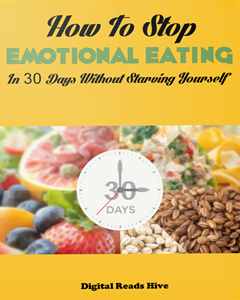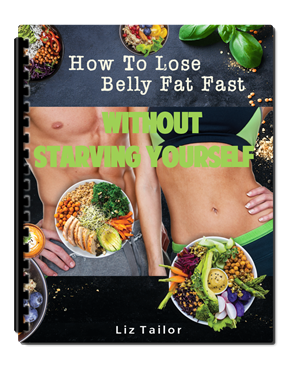Emotional eating isn’t really about hunger—it’s about comfort. It’s the habit of using food to soothe feelings we don’t want to feel: stress, loneliness, boredom, guilt, or sadness.
The problem is that temporary comfort often turns into regret, frustration, and guilt. And that cycle can feel endless.
It is possible to stop emotional eating naturally. You don’t need strict diets, calorie counting, or food shame.
What you need are simple, sustainable habits that help you healthily manage emotions and reconnect with your body’s true hunger signals.
These 10 daily habits can help you regain control, rebuild trust with food, and find peace with eating again.
1)) Start Your Day With a Grounding Morning Routine
How you start your morning sets the tone for your entire day. When you rush out of bed, skip breakfast, or dive straight into stress, your body and mind go into reactive mode—and that often leads to emotional snacking later.
A calm, intentional morning helps regulate your emotions and reduces impulsive eating.
Morning Routine Reset Tips:
- Hydrate first thing. Drink a full glass of water before your coffee or breakfast to rehydrate your body and wake up your system.
- Journal for 5 minutes. Write down your intentions or emotions before the day starts. This helps clear mental clutter and lowers stress.
- Eat a balanced breakfast. Include protein, fiber, and healthy fats—like eggs with avocado toast or Greek yogurt with berries—to stabilize blood sugar and prevent mid-morning cravings.
- Move a little. Even 10 minutes of stretching or walking boosts endorphins and lowers cortisol (the stress hormone linked to emotional eating).
When your mornings feel grounded, you feel calmer and more in control—making it easier to stop emotional eating before it begins.
2)) Recognize Your Emotional Triggers Before They Take Over
Emotional eating isn’t random—it’s triggered. Maybe you snack when you’re stressed at work, lonely at night, or angry after an argument.
The first step toward breaking the cycle is identifying those emotional triggers.
Emotional Trigger Awareness Worksheet:
Use this simple three-step exercise daily:
- Notice the urge. When you feel the sudden desire to eat, pause and ask: “Am I physically hungry or emotionally triggered?”
- Name the emotion. Is it boredom, anxiety, sadness, or guilt? Naming the feeling helps you see it clearly instead of acting on impulse.
- Replace the behavior. If it’s not true hunger, try another soothing action: take a short walk, call a friend, journal, or breathe deeply for 60 seconds.
Over time, you’ll start recognizing patterns—and that awareness is what breaks emotional eating at its root.
3)) Keep Your Blood Sugar Balanced All Day
Here’s the truth: unstable blood sugar can make emotional eating much worse.
When your glucose levels crash, your brain goes into survival mode, craving quick fixes—like sweets, chips, or anything carb-heavy.
Keeping your blood sugar steady is a science-backed way to stop emotional eating naturally.
Blood Sugar Balance Hacks:
- Never skip meals. Skipping meals often leads to bingeing later. Aim to eat every 3–4 hours.
- Pair protein with carbs. Combine foods like apples with peanut butter, or rice with chicken and veggies, to keep energy stable.
- Stay hydrated. Thirst can masquerade as hunger. Drink water throughout the day—especially before meals.
- Limit sugar spikes. Avoid starting your day with sugary cereals, pastries, or coffee drinks. They trigger energy crashes and cravings.
Balanced meals keep your brain stable, your body satisfied, and your emotions easier to manage.
4)) Practice Mindful Eating at Every Meal
Most emotional eaters eat fast and distracted—watching TV, scrolling on their phone, or rushing through meals.
Mindful eating reverses that habit by slowing you down and helping you actually taste your food. It’s about connection, not control.
Mindful Eating Best Practices:
- Sit down at a table. Don’t eat standing or driving.
- Take a breath before your first bite. It signals your body to relax and digest.
- Chew slowly. Aim for 20–30 chews per bite. Notice flavors, textures, and satisfaction cues.
- Check in halfway. Ask: “Am I still hungry, or am I eating out of habit?”
- End with gratitude. Thank yourself and the food for nourishing your body.
Mindful eating isn’t a diet—it’s a practice that helps you listen to your body’s true hunger, which naturally helps you stop emotional eating.
5)) Manage Stress Before It Manages You
Let’s be honest—stress is the number one cause of emotional eating. When life feels overwhelming, food becomes an easy comfort.
But if you create daily rituals that help you release stress instead of feeding it, you’ll find yourself turning to food less often.
Stress Relief Checklist:
- Move daily. Exercise releases endorphins and lowers cortisol. It doesn’t have to be a gym workout—a 20-minute walk counts.
- Set boundaries. Say “no” more often to things that drain your energy.
- Create relaxation rituals. Light a candle, listen to music, or take a warm bath before bed.
- Practice deep breathing. Even two minutes of focused breathing can shift your nervous system from stress to calm.
- Prioritize sleep. Fatigue makes emotional regulation harder, increasing the urge to comfort eat.
When stress becomes manageable, your relationship with food starts to heal.
6)) Redefine “Comfort” Beyond Food
For many, food equals comfort. It’s how we celebrate, grieve, and cope. But emotional comfort doesn’t have to come from a plate—it can come from self-care, creativity, or human connection.
The goal isn’t to remove comfort, but to expand it.
Comfort Swap Ideas:
- Instead of snacking, try journaling or reading a few pages of a favorite book.
- Instead of dessert for stress, listen to music that matches your mood.
- Instead of late-night bingeing, call a friend, meditate, or wrap yourself in a blanket and breathe.
- Instead of food rewards, give yourself experiences—like a walk in nature, a long shower, or a new hobby.
The more sources of emotional comfort you cultivate, the less power food will have over your emotions.
7)) Build Emotional Awareness Through Journaling
Journaling is one of the most powerful tools to stop emotional eating because it gives your emotions a voice.
Instead of stuffing feelings down with food, you express them on paper—and that releases their grip.
Emotional Awareness Writing Prompts:
Try journaling for 10 minutes daily using prompts like:
- “What emotion am I feeling right now, and why?”
- “What does my body need instead of food?”
- “When I overeat, what am I really trying to avoid?”
- “What would self-compassion look like in this moment?”
The goal isn’t perfection—it’s honesty. The more you understand your emotional patterns, the easier it becomes to break them.
Writing helps you separate yourself from the emotion itself, making space for better choices.
8)) Reconnect With Your Body’s Hunger and Fullness Signals
Many emotional eaters lose touch with their body’s natural cues. They eat because it’s time, because food is available, or because they’re upset.
Reconnecting with your hunger and fullness signals helps you rebuild trust with your body and regain control.
Body Awareness Practice:
Before, during, and after meals, rate your hunger on a scale of 1–10:
- 1 = Starving (dizzy, irritable, low energy)
- 5 = Neutral (neither hungry nor full)
- 10 = Stuffed (uncomfortably full)
Aim to eat around a 3–4 (slightly hungry) and stop at a 6–7 (comfortably satisfied). Notice how food feels—not just how it tastes. Over time, you’ll start to see eating as nourishment, not an escape.
This practice not only helps stop emotional eating but also builds a healthier, more intuitive relationship with food.
9)) Create an Environment That Supports Healthy Choices
Your environment has a powerful influence on your behavior. If your pantry is full of processed snacks, or if stress triggers are everywhere, it’s easy to fall back into emotional eating.
Setting up a supportive environment removes temptation and reinforces your goals.
Healthy Environment Hacks:
- Out of sight, out of mind. Keep trigger foods off your counters and store them in opaque containers.
- Stock smart snacks. Replace chips and candy with nuts, fruit, hummus, and Greek yogurt.
- Organize your fridge. Make healthy foods visible and accessible.
- Set up calming spaces. Create a cozy reading nook or meditation corner so you can decompress without food.
- Use visual reminders. Sticky notes with affirmations like “Pause and breathe” or “You are in control” can interrupt emotional eating urges.
Small environmental tweaks can lead to big behavioral shifts.
10)) Practice Self-Compassion Every Single Day
Perhaps the most overlooked habit in stopping emotional eating is self-compassion.
Shame and guilt only keep the cycle going. The real progress begins when you forgive yourself and treat setbacks as opportunities to learn.
Self-Compassion Practice Guide:
- Reframe mistakes. Instead of saying, “I failed again,” say, “I had a tough day, and that’s okay. I’m still growing.”
- Speak kindly to yourself. Notice negative self-talk and replace it with encouragement.
- Focus on progress, not perfection. Every small win counts.
- Create an affirmation ritual. Each morning, repeat phrases like, “I’m learning to trust my body,” or “I can handle my emotions without food.”
You don’t have to earn your worth through willpower. Healing emotional eating is about self-understanding, not self-punishment.

Break free from emotional eating in just 30 days with this compassionate, step-by-step, quick guide. How To Stop Emotional Eating In 30 Days Without Starving Yourself helps you understand your triggers, manage cravings, and heal your relationship with food — no diets, no guilt, no deprivation. Take control of your eating habits and start your journey to food freedom today!
Conclusion
Overcoming emotional eating isn’t about control—it’s about connection. The more you understand your emotions, nourish your body, and treat yourself with compassion, the less power food holds over you.
These 10 daily habits aren’t quick fixes—they’re lifestyle shifts that help you stop emotional eating naturally and create a healthy, peaceful relationship with food.
Progress may feel slow, but every step counts. With patience and consistency, you can move from guilt and frustration to freedom and balance.
Your emotions deserve attention—not suppression. And your body deserves care—not control.
Start small, stay consistent, and remind yourself daily: you’re not broken, you’re healing.
Download Our Free E-book!







